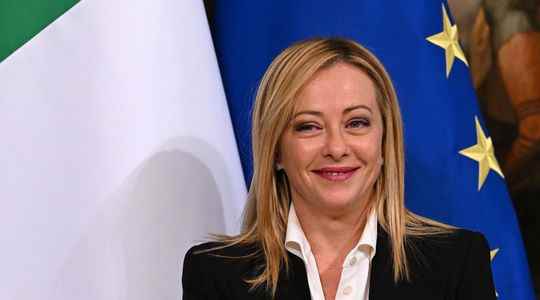How far away it seems, this December 8, 2021 when the arrival of Olaf Scholz at the head of the German government aroused the enthusiasm of his partners! His election had moderately delighted the Elysée and the French ministries, where we had experienced the stiffness of the former finance minister and vice-chancellor of Angela Merkel. But no matter: when it was elected to the chancellery, the EU was celebrating the alignment of the planets. First, a dream Franco-German tandem, made up in Berlin of a tripartite coalition displaying its desire for Europe, and in Paris of President Emmanuel Macron who has made European sovereignty his political identity. Then, an Italy which had sent the national-populist Matteo Salvini to waltz to prefer Mario Draghi, alias “Super Mario”, former president of the European Central Bank. Finally, in Brussels, a President of the Commission, Ursula von der Leyen, decided to give her mission a “geopolitical” direction. After the big populist wave that began in 2016 with Brexit and the election of Donald Trump, Europe, which had known how to unite like never before in the face of the effects of the pandemic, was all swollen with dynamism and self-confidence. It was a year ago.
From “brain death” to waking up
On February 24, 2022, Russia’s invasion of Ukraine could have blown it all up. Vladimir Putin had planned it that way. The disengagement initiated by the United States in Europe for the benefit of Asia, the state of “brain death” of NATO and the internal divisions within the European Union weakened the “Western collective” and were part of the plan of offensive. The opposite happened. The Russian president has still not recovered: the United States supports Ukraine as one of its own, NATO has awakened and expanded, the European Union has united, under the threat of an illegitimate war waged on its doorstep by a nuclear power. For the first time in its history, the EU has recovered 2.5 billion euros to buy weapons and deliver them to the Ukrainians. It was eight months ago.
On September 25, 2022, the same Europeans were in shock. Shortly after the breakthrough in the Swedish Parliament of an extreme right from the neo-Nazis, the Italian elections were marked by the clear victory of Giorgia Meloni and her conservative national party, Fratelli d’Italia, at the head of a right-wing coalition. Europe’s third largest economy was to have a leader with fascist origins. It was six weeks ago.
For a year, eight months, six weeks, everything has been turned upside down, even reversed. The “postfascist” Giorgia Meloni, paradoxical in the camp of populist nationalists, refuses Putin’s blackmail on energy, reaffirms her support for Ukraine and surprises with a pro-European program in the quasi-continuity of that of Draghi, of which she is near. European unity in the face of Ukraine is resisting, but it has emerged from its pink period, struggling to find common solutions on energy issues and being divided on the objectives of the war, between the countries of the East and the North who want a victory for Ukraine and those in the center who want a quick peace. As for Olaf Scholz, he lost his aura through his decision to buy gas alone across the world without coordinating to avoid rising prices, to set up a shield of 200 billion euros without warning anyone, to open the port of Hamburg to Chinese participation, to forget European sovereignty by favoring an anti-missile shield with fourteen countries, without France.
Earthquake
Franco-German disputes are part of the habits of an old couple, but the current crisis has deeper causes. It cannot be attributed to Germany alone – France is neither more altruistic nor better European – nor solely to the – real – misunderstanding between Macron and Scholz. The war in Ukraine is an earthquake throughout the continent. If it has awakened Europe, it is destabilizing it. It panics Germany by forcing it to revolutionize its economic model, based on Russia for its cheap gas and on China for its commercial outlets. It worries France by shifting the center of gravity of Europe, already initiated with the departure of the United Kingdom, towards the east, where the candidates for membership are. France, nuclear power as it is, is no longer in the middle. Poland takes off, Ukraine arrives. The future is in the East, and Germany has already made its mark there. France, no.
